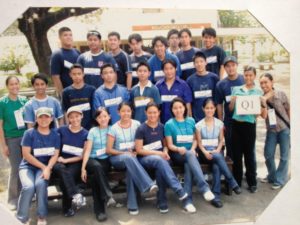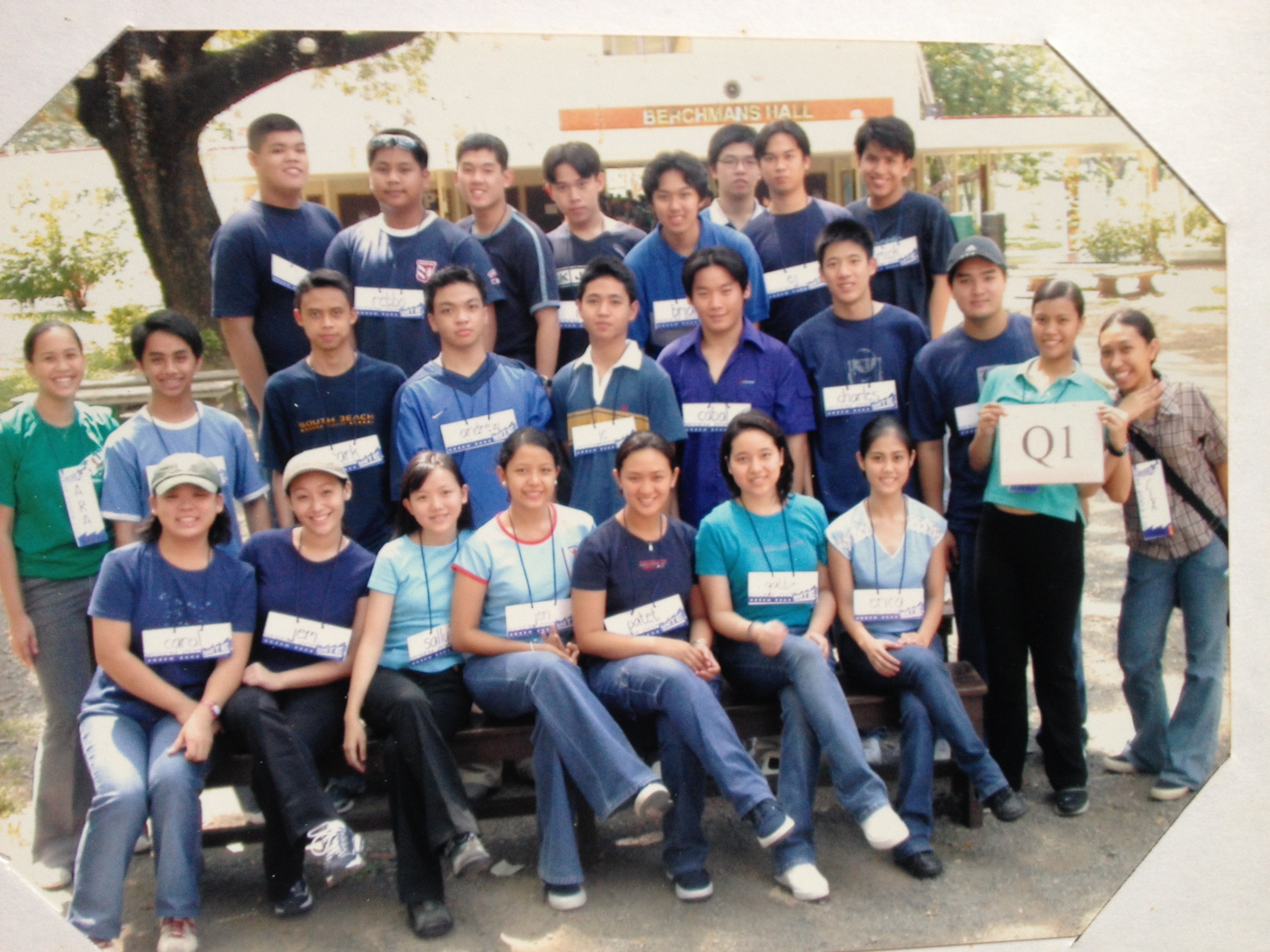
This is Part 2 of the article “8 Lessons I’ve Learned 10 Years Since Graduation”. Part 1 of the article is here.
What are some of the other lessons I’ve learned since graduation?
You choose the friends you remain close with
And you determine what the term “friend” means to you.
When I was still in school, I considered everyone I got the pleasure of meeting, and enjoyed being around, a friend.
Now, after 10 years, I realize that the word “friend” had a deeper meaning for me.
Even though I haven’t seen them for quite some time, if somebody I had considered a friend would talk to me, call on me, or want to meet me, then I’d make time for them, and I’d be there to give them my support.
I don’t need to always be there, but for a small group of friends that I have, we meet regularly.
You choose the people you want to be around with. Nobody chooses that for you.
I’ve even had an opportunity to work in an office, where I didn’t even consider the people I worked with as friends. Now I do (well, some of them), but for me to invest my emotional energy, and time with them? Count me out.
That’s what friendship is – it’s an investment of emotional energy, time, and resources into a relationship.
And you choose these people. These people will either lift you up to high heavens, or drag you to the deepest parts of hell.
And it’s your choice of destination. Just make sure you choose the right friends, the right people, to take you to where you want to go.
Jim Rohn says that “You are the average of the 5 people you spend the most time with.”
Choose your friends. Wisely.
What we repeatedly do, influences what we become
All of us have our habits, whether we are aware of them or not. It’s these habits that we have developed, or built, that will give us the accumulated results over time that influences how we think, feel, and what we become.
Be conscious of your habits, and build habits that support you, and change those that do not.
How we do anything, is how we do everything.
This includes mental habits – how we think, and emotional habits – how we feel.
I used to keep telling myself that money was hard to come by, and hard to make.
Although I’m aware of the fact now, but then, it was such a struggle for me to make money, and I always racked my head how to make it, and where to find it.
Because I kept telling myself that money was hard to come by, my mind, and my being, made that true.
I wasn’t doing any exercise then, and had no regard for my health. I became overweight, sluggish, depressed, and had developed excruciating issues with my lower back.
And because of the lack of self-care, the accumulated stress and damage to my body contributed to me being unhealthy, in pain, and sad.
Fast forward 4 years later. Now I exercise regularly, and am better at watching what I eat. It wasn’t an overnight thing to get to this point, but I had to change and build habits to get here.
Set direction, and trust in the process and the small daily actions to get you there.
Focus on getting better 1% every day. The gains, the results, accumulate.
Until it feels like magic – you’ve changed.
How you do anything, is how you do everything.
What you repeatedly do, influences what you become.
Raise your standards
Last year, I had already looked back into what I had been doing in my life after graduating.
I felt frustrated, angry at myself, as well as deep regret, because I wasted 2 years playing games, didn’t achieve what I set out to do, and I felt I was lagging behind by what I should have accomplished by then.
I wasn’t kind to myself, and to others.
Rough.
I realized that, at the core of it, I felt all these negative feelings because I had expectations of myself that I had not achieved. Those were very strict, very high expectations.
Actually, they were unrealistic expectations. And unrealistic expectations are cop-outs – because we don’t want to think, are afraid to face the truth, and put our future into the hands of other people, or in circumstances that are not in our control.
That’s when I decided to change – to raise the standards I had for myself.
I started out with my physical health and well-being, then my mental capacity, and then, in terms of the standards I had for committing to myself, to my goals and achievement too.
Standards not only for the results that I wanted to achieve, but for the process as well – standards on the commitment and consistency of the actions that contribute to me achieving my goals and dreams.
Your body, your relationships, how and where you spend your time, your choices – all a direct reflection of the standards that you have for yourself, and consequentially, for others.
What’s a higher standard for yourself than achieving six-pack abs?
Forgiving yourself for not getting it in the time allotted. Having fun and enjoyment in the process, and still being able to see the positive, and all the fun and enjoyment, and forgiveness, when you don’t hit it.
Finding ways, committing to, and choosing to be happy, despite your expectations not being met, despite the best of efforts, isn’t lowering your standards – it’s actually raising them.
That you always have a choice, and you choose to stay positive, happy, encouraging, no matter what happens.
That’s harder. That takes commitment.
That’s a higher standard.
Choose.
It’s OK to not have everything figured out
Maybe it’s because I’m working with people who are ten years older than me. But I realized that it’s OK. Life is a journey, and you won’t have everything figured out when you start a journey.
Maybe because planning comes easy to me, a responsible type, but this goes for anybody as well – we want to minimize the uncertainty we have in our life, and try to figure out everything before we even start anything.
It’s hard being a perfectionist – because there’s no such thing as perfect.
And me being the perfectionist that I was, I actually held back, scared myself into not doing anything because I couldn’t guarantee the results would be perfect.
And the times where I held on to those beliefs strongly, were some of the most difficult, dry, and harsh times in my life.
If there’s one thing I really want to go back in time, and tell my 10 year-younger self, it would be this:
“It’s OK to not have everything figured out, and you’d be crazy if you try. Figure it out one step at a time, and keep moving forward, trying new stuff.”
Everything’s an experiment.
Take bits and pieces from experiences, and build the life that you want. Build the person that you want to become.
Straight out of college, I volunteered a year of my life to teach in a remote province of Palawan in the Philippines (Hi Jesuit Volunteers Philippines!). I hadn’t figured out anything yet, but I was so willing to serve, learn, and experience.
And true enough, that year (and a half) proved to be one of the best time I ever had, and one of the best decisions I ever made in my life.
Because I didn’t have everything figured out.
The moment you feel you’ve got it all figured out in life, is the moment you stop growing.
And the moment you stop growing, is the moment you start dying.
Forgive yourself, and be kind to yourself.
It’s OK.
10 years after
And I feel lucky to be alive. At one point or another, I thought in thee past 10 years, that I wouldn’t, but I”m thankful that I’m still here, being given a second chance.
Here’s to the next moment.
Here’s to the next 10 years.
Here’s to more memories.
Life is what you make of it. Use that opportunity, judiciously.
What lessons have you learned, 10 years since graduation? Please share in the comments below!

Leave a Reply